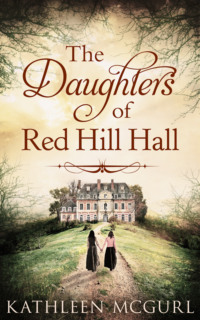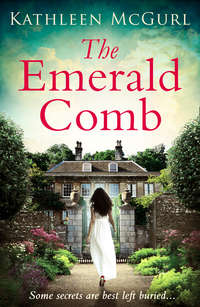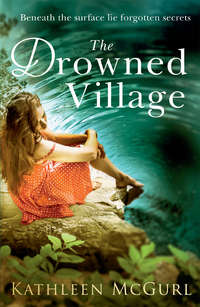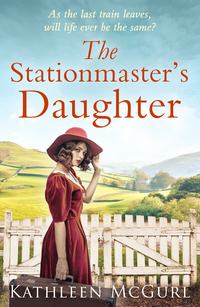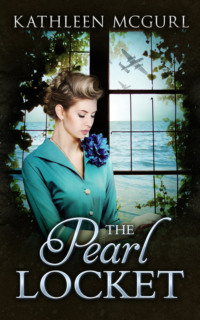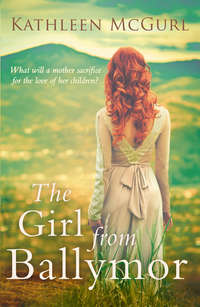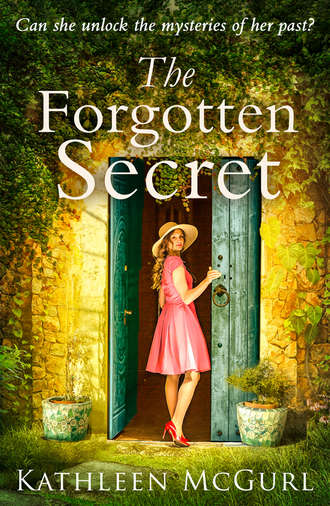
Полная версия
The Forgotten Secret: A heartbreaking and gripping historical novel for fans of Kate Morton
She shivered. ‘Keep safe, promise me.’
‘I will.’
They’d reached the top of the hill. The view in all directions was spectacular. Ellen spun around, gazing over the fields and hills and farms that were spread beneath her. ‘It’s as though you can see right across Ireland from here,’ she said. ‘When I came before it was too misty and wet a day to see anything. Now I can see why the ancient kings built their forts up here.’
‘They’d be able to see enemies coming from a long way off,’ Jimmy agreed. He led Ellen over to the mounds of earth that marked where the Iron Age fort had stood, and together they walked around it. A few sheep were up there, grazing contentedly on the short grass. ‘When the old kings had their seat here, Ireland was independent, mistress of her own destiny,’ he said, wistfully. ‘She was beholden to no one, least of all England. Did you know Ireland is the only country in Western Europe that was never part of the Roman Empire? We were free and proud. And so we shall be again.’
‘Come on. Let’s sit and have our picnic,’ Ellen urged him. It scared her when he spoke with such fervour. Although she knew and understood that this was a crucial part of who he was, she found it hard to accept that he would lay down his life for his country, if it was required of him. Would he lay down his life for her? She would never ask it of him, though she knew she would sacrifice herself for him, without hesitation. Was that the difference between men and women? That women loved their man and men loved their country best? How then, did women like Madame Carlton fit in? As a widow perhaps she was free to care more for her country and its future.
They spread the picnic rug on one of the ridges of earth that had once formed part of the Iron Age fortifications, sat down and opened the basket Jimmy’s mother had packed for them. Bottles of beer, hard boiled eggs, cold boiled potatoes, a jar of chutney, slices of ham and thick chunks of soda bread were all neatly wrapped in paper. There were two plates, knives and forks nestled at the bottom of the basket.
‘This looks wonderful, so it does,’ Ellen said. ‘You must thank your mother for me.’ Her own father had muttered in disapproval when she’d told him she was going out with Jimmy for the day. But she was a grown woman, who worked hard all week, and it was up to her how she spent her day off. These days, when they were young and free and able to spend time together, were so precious. Who knew how many of them there would be?
With luck the conflict would end soon, and Jimmy would marry her. Maybe it would drag on for years, keeping them apart, keeping Jimmy in danger. She shook the thought out of her head. Live in the moment, Mary-Ellen, she told herself. Tis all you can do, and tis the best place and time to be.
On impulse she reached for Jimmy and pulled him towards her, kissing him, just as he had done to her on the bus. The kiss was long and deep, and she felt herself melting into him as he pressed himself against her. She wanted him, she realised. They weren’t married, it was wrong, but it felt so right! She’d give herself to him, if that’s what he wanted. She was ready to take such a step. And maybe it’d keep him close if they became lovers. It’d help him realise how much was at stake, and perhaps persuade him to put her first …
But after a while he pulled away, flushed and panting slightly.
‘Oh, my love,’ he said. ‘There’ll come a time for us, you’ll see. When you and I can be together, properly, and for all time. It’s not here and now though. I … I love you. But we have to keep apart, do things properly, wait until the time is right.’
‘Jimmy, when will that be?’ she whispered, knowing how he’d answer.
He sighed and looked away from her, leaning back against the earthen mounds. ‘When the war is over. When Ireland is free. I cannot commit to you before then. I am sorry, but you must understand – this is who I am. This is why I’ve been put on God’s earth – to take part in this struggle, to do my bit. Please, you must let me.’
Her eyes filled with tears, but she nodded. ‘Of course. I will wait for you. Just …’
He smiled. ‘I know. Just keep safe. I will.’ He leaned over and gave her a chaste kiss on the cheek, then lay back on the rug, looking up at the sky that was now streaked with high wispy clouds. ‘Listen, let me tell you about a mission some of my Volunteer comrades were on last week.’
She shook her head. ‘No, don’t tell me. The less I know, the better.’
‘It’s not like that. It’ll amuse you, honest it will. And no one was hurt.’
‘Go on, then.’ She lay beside him, her head on his shoulder, to listen.
He cleared his throat. ‘So, a company of Volunteers, a few fellas among them I know, had been tasked with transporting some weapons across the county. Too far to carry them, too far for a horse and cart, and they had no other transport, but the guns were sorely needed for … well … for another campaign.’
Ellen pressed her lips together. She did not want to think about what the guns were to be used for.
‘Anyway, one of the lads had a bright idea. He went to the telegraph office, and sent a telegram to the local doctor, an Englishman named Doctor Johnston who was known to drive a large motorcar, telling him that a woman who lived in a remote farm was in desperate need of his attendance, and he was to come at once.
‘The doctor set off, but on the way, on a bridge, he met with the company of Volunteers. They stopped him and commandeered his motorcar. He protested of course, telling them he was on an urgent call – at which they came clean and told him it was a hoax. He waved his travel permit at them – issued by the Black and Tans – but that didn’t cut the mustard either. Finally, as he looked about to explode with fury, they gave him a receipt for his car.’
‘A receipt?’
‘Well, they just scribbled something on a piece of paper and handed it to him.’
‘He’ll get his motorcar back though, won’t he?’
‘Aye. When the war is over. That’s what it said on the receipt.’
Ellen smiled. ‘That could be years!’
‘It could indeed.’
She laughed. It was a comical image – a blustering English doctor being forced to give up his car to the Irish Volunteers, and being given a meaningless paper receipt for it. Well, if this was the sort of mission Jimmy was involved in, she had little to worry about. It all sounded rather good-natured, on the whole.
As the day wore on the sky clouded over and temperatures dipped. Ellen began to shiver. Her shawl was not warm enough for an autumn day without the sun shining. Jimmy packed up the basket while she folded the picnic blanket, and they descended the hill back to the lane to catch a bus to Blackstown. They journeyed home in companionable silence. Thankfully no Black and Tans got on the bus this time and the journey was a peaceful one.
It had been a day to remember, she thought. One to look back on, in the dark days to come. She shivered a little, in Jimmy’s arms, wondering why that thought had appeared in her mind. Who knew what was to come?
That evening, she lay in her narrow bed recounting the events of the day to Siobhan.
‘I’m after having the day off too,’ Siobhan said. ‘Madame wanted the house empty for more of her ridiculous cloak-and-dagger stuff.’ She sighed. ‘I wish she wouldn’t do it. Puts us all in danger, so it does. I’ve a mind to look for a job elsewhere, but this kind of work isn’t easy to find, while the war’s on. You were lucky, you know. Walking into it, the way you did. Becoming Madame’s favourite in the first five minutes.’
‘Ah, sure I’m not her favourite,’ Ellen protested, but Siobhan had turned her back to go to sleep, signalling the end of the conversation.
Chapter 7
Clare, April 2016
I woke in the morning wondering for a moment where I was, gazing around at the unfamiliar floral wallpaper and faded curtains through which weak sunlight was streaming, and then remembered. I recalled too the search for candles, the milk-less tea and makeshift supper. I’d made it through the first night. I’d coped. I hadn’t given up and run away to a B&B. And today I’d get the electricity reconnected and buy some food. I smiled, feeling pleased at having proved I had a tiny bit of independence hidden deep within me.
Breakfast was just another cup of black tea. I warmed some water on the stove for a wash and then drove into Blackstown where my first stop was the café for a coffee and proper breakfast, and to plug my phone in to charge while I ate it.
The waitress, recognising me from last night, smiled and introduced herself. ‘Hi. I’m Janice. Saw you here last night. On holiday, are you?’ She looked to be in her mid-thirties, with a round smiley face surrounded by a mass of unruly curls.
I shook my head. ‘Not on holiday no. Actually I’ve just moved here, to my uncle’s old farm that I’ve inherited. I’m Clare.’
‘Pleased to meet you, Clare. Which farm would that be, then?’
‘Clonamurty.’
She frowned. ‘Can’t say I know that one. Who was your uncle?’
‘Pádraig Kennedy. The farm’s a few miles out of town.’
‘Towards Bettystown?’
I wasn’t sure of the geography. ‘East-ish.’
She nodded. ‘I know where you mean. Sorry to hear of the loss of your uncle. I knew him a little. Knew of him anyways. Everyone knows everyone in this town, so they do.’
‘It was years since I last saw him. His sons all died young so he’d named his sister – that’s my mum – or her descendants in his will. Mum died a couple of years ago, so it’s all come to me.’
‘That’s so sad. About your cousins and your mum, I mean. And you’re going to live here?’
I nodded, but said nothing. I didn’t feel quite ready to tell her I’d left my husband yesterday.
‘Ah that’s grand. Well, will I get you a coffee?’
I laughed, realising I had not yet given her an order and a few more people had come in while we chatted. ‘Yes, thanks – there’s nothing in the house yet. Coffee and scrambled eggs on toast would be wonderful.’
‘Sure,’ she replied, patting my shoulder as she passed on her way back to the counter. I had a feeling Janice and I could become good friends, in time. I certainly intended visiting this café frequently, if that cake I had yesterday was at all indicative of the quality of food.
Mentioning my cousins to Janice set me off on another trawl through my memories while I waited for my order. Uncle Pádraig had three sons. Brian, the eldest, was ten years older than me, and when we went visiting he was always far too interested in his latest car, or latest girlfriend, to pay his little cousin much attention. He was the glamorous one, in my eyes. The one with smart clothes, long slicked-back hair and a glint in his eye. He was a charmer, and on the odd occasion he did notice me, ruffle my hair, or pick me up to spin me around, I’d be delighted. I hung off his every word. We’d go back to England and Mum would get fed up of me saying, ‘Brian said this; Brian thinks that.’
‘Ah, enough of what your cousin Brian thinks,’ Mum would say. ‘That one’s too flashy for his own good.’
He married three times, each wife taller and more blonde than the last, and died in a horrific car crash in his Porsche on the Route des Crêtes in the South of France. ‘Typical of Brian,’ Mum had said, between her tears at the funeral. ‘Lived fast, died young, in such a clichéd fashion.’
My second cousin, Dwayne, couldn’t have been more different. Where Brian was good-looking and flashy, Dwayne was plain and quiet, though when he smiled he could light up a room. He was always tucked away in his bedroom, reading books of sermons, fingering his rosary, praying in front of his little glass case that he said contained a hair of St Catherine of Siena. I liked him, but never quite knew how to handle his deep religiosity. We, the English branch of the family, were lapsed Catholics.
Dwayne joined the Christian Brothers, and trained as a teacher in a boys’ school. He sent Christmas and Easter cards every year, and a dutiful letter to my mum on her birthday, which always ended with the words, ‘Pray every day and you’ll not go far wrong.’
Dwayne died just four years ago, aged 53, of cancer. Uncle Pádraig phoned Mum, who was at that time dying of cancer herself, although we didn’t know it at the time. He was the last of Pádraig’s three sons to die. Mum went over to Ireland for the funeral, came back looking ill and exhausted, and full of news that Pádraig was insisting on changing his will in her favour, now that all his sons were gone and he had no grandchildren. Mum had argued it with him, saying what would she do with a farm in Ireland? But Pádraig had insisted, and said it could all come to me if I outlived Mum.
Mum had told me this on the quiet, when Paul was not around. I think she knew then she was dying but had not told me or Dad yet. I think she also knew I was unhappy with Paul, and could see that an inheritance, in time, from my uncle might be my escape route. She was a wise woman, my mum.
And then there was David, Pádraig’s third son and the one closest to me in age, being only two years older. But I don’t think it was just our proximity in age that drew us together. We shared a lot of interests (he lent me the entire set of Enid Blyton Mystery books) and we often went out cycling together along the country lanes surrounding the farm. It was David who first took me to the Hill of Tara (on a long day’s cycle ride when we were in our teens), and told me the legends of the ancient kings of Ireland. He knew so much about his country’s history. He was, of all of them, the most Irish, the most proud. The most Republican.
He was arrested for the first time when he was 20, on suspicion of involvement in planning an ambush of British troops on the border near Blacklion. There was not enough evidence to convict him, although one of his friends was imprisoned. It was after this that David announced by letter he wanted to be called Daithí, the Irish form of his name.
Mum had shrugged, taught me how to pronounce it (Doh-hee, more or less) and written back, urging him to ‘be careful, stay out of trouble’. I asked what she meant. Why did she think he could be in trouble? ‘Oh that boy,’ she’d replied. ‘There’s only one way he’s headed, with beliefs as strong as he has. Your granny has a lot to answer for, putting ideas in his head.’ I wasn’t sure what she meant, and she refused to elaborate. David was her favourite nephew, I knew, but also the one most likely to exasperate her. I only heard the reason for his arrest many years later.
The second time Daithí was arrested he ended up imprisoned in Long Kesh, where he died a couple of years later, of pneumonia, or so we were told. (‘Pneumonia, my arse,’ said my mother, through her tears at his funeral.) I was 22 at the time. It was hard to equate the smiling, Enid-Blyton-reading, cycling, Irish-history-loving boy I’d known as a child with a convicted terrorist. Even now it’s hard for me to get my head around.
Morbid thoughts. And yet today was the first day of the rest of my life. Time to shake off the past and look to the future.
A decent breakfast and the excellent coffee Janice served made me feel a lot more positive. When I’d finished eating and the café was quiet, she sat with me and told me where the supermarket was, and how to get my electricity reconnected. In turn, I ended up telling her a little about Paul. She regarded me with sympathy and then patted my shoulder in solidarity. ‘Sounds to me like you’ve done the right thing, making a clean break. Your good old uncle, eh, providing you with an escape route!’
‘That’s what I thought,’ I replied, gathering up my things. It was time I got going. My phone was fully charged but I was reluctant to turn it on while I was still in the café. There’d be messages from Paul, I was sure of it. I wasn’t ready to face them just yet, although I knew I’d have to, soon.
‘Use the café’s phone to call Electric Ireland,’ Janice said, as though she could mind-read. ‘Go on. It’ll only take a moment and the sooner you call them the sooner they can get working on it.’
So I called them and they promised to have the electricity reconnected by the end of the day. Another problem solved, and I could put off switching my phone on for a little while longer.
I left the café promising to be back again tomorrow, taking with me a slice of chocolate fudge cake wrapped in a napkin, which Janice had insisted I have. ‘It’s the last slice and a bit too crumbly to serve to a paying customer,’ she’d said. ‘I’ll be making more today.’
Food shopping was high on the list of things to do next. As was poking around Blackstown. There was that bookshop I’d spotted opposite the café, and as Uncle Pádraig had left no reading material in the house other than a few volumes of Padre Pio sermons (probably left over from my cousin Dwayne) and those boxes of old papers and letters, I was keen to buy myself a few novels.
But before all that, I realised I should ring or at least text the boys. That meant turning my phone on. There was a small park – just a patch of green really – at the end of the high street, surrounding a spreading oak tree with a bench underneath. I sat there, pulled out my phone, took a deep breath and turned it on. Once it was registered on Vodafone Ireland the notifications began coming through. Texts from both boys asking if everything was OK and if I’d arrived safely. Texts saying I had seven voicemail messages. A text telling me that there were no roaming charges as I was in a ‘roam-free’ destination. And a series of texts from Paul.
Why aren’t you at home?
Where’s the car?
Why aren’t you answering your phone?
Are you serious about leaving? You’ll never cope on your own.
I called Matt. He said you’d gone to Ireland. Is that right?
If you’re in fucking Ireland where’s the car?
If you’ve taken the car, how the fuck am I going to get to work?
It was clear he hadn’t believed me when I’d told him I was leaving. He’d dismissed everything I’d said as worthless, and had only believed I’d left him when Matt confirmed it. And he seemed more upset about the car than anything else.
My first reaction was anger when I read those texts, and then I calmed myself down, read them again, and realised they were almost comical. I realised too that I didn’t care.
Next, while I still had that ‘don’t care’ feeling, I listened to the voicemails. There were two from Matt – a ‘hope all’s OK’ one and another warning me Paul had rung him; and the other five were from Paul, saying much the same as the texts but in increasingly belligerent tones. The last asked what he was supposed to have for dinner. I laughed out loud at that one, and pictured him heating up a few tins as I’d done. More likely he’d have phoned for a takeaway curry, despite the freezer full of good food, and several ready-meals in the fridge. I’d stocked it up for him before I left.
So there were three phone calls to make.
I called Matt first.
‘Hey, sweetie. Just letting you know I got here safely. All’s good.’
‘Mum, that’s great! I mean, really. Well done. You took the car, right?’
‘I did. Your granddad gave it to me, after all.’
‘Yeah. Um, Dad’s furious about that. Has he called you?’
‘He’s tried to and left messages. My phone was out of charge and there was no electric at the farm last night. It’s being connected today.’
‘Were you OK? No lights or anything?’
‘I was fine. I found some candles and the oven runs off gas.’
‘Wow. Well done.’
‘What for?’
He hesitated before answering and I pictured him scrabbling around for the right words. ‘For doing it, Mum. For putting yourself first. For getting yourself over there and beginning to get things sorted out. It’s a big, brave step. I’m so bloody proud of you.’
There was a catch in his voice at the end, and I felt my own eyes begin to well up. Time to change the subject. I didn’t want to sit here, in the middle of Blackstown, blubbing. ‘Thanks, love. Well I’d better phone Jon, and then work out how to respond to your dad’s messages.’
‘Ignore them. Block his number.’
‘No, love. I need to talk to him. It’ll be all right. We’re grown-ups, after all.’
‘Hmm, is he? Well good luck then.’
I’d need it, I thought, as I said goodbye and hung up. All very well me sounding cool and grown-up about it when talking to Matt but inside I was quaking. I called Jon next, for more moral support, before tackling Paul. It would not be an easy conversation.
It wasn’t. There was ranting, from him, and crying, from me, despite my best efforts to stay calm. He’d thrown out the ready-meals I left for him in a fit of pique. He’d eaten nothing last night other than a tin of beans on toast and tonight he’d call for a pizza and he expected me home tomorrow. ‘You’ll be fed up of your little adventure by then,’ he said, the sneer in his voice loud and clear. ‘Something will go wrong and you won’t know how to get it fixed, and you’ll be on the next boat home.’
‘I’ve already got some things fixed and sorted,’ I said, not able to resist. ‘The electricity’s being reconnected. The oven works. I’ll be home soon – sure – my new home of Clonamurty Farm.’
There was more ranting about the car. I pointed out (again) that it was mine, my name was on the registration certificate, and that if Paul needed a car he could easily afford to buy himself one.
The conversation was going nowhere. I could feel myself beginning to want to make excuses, to apologise, to find solutions for his problems. This was not how it should be. I’d left him. I did not want to go back. I’d loved him once, at the beginning, loved all that he’d done for me. But over the years he’d begun more and more to control every aspect of my life. I’d become dependent, and stifled, and it was time for me to go. I realised I had to get off the phone before I caved in, before he set me back a few steps.
I interrupted him in mid-flow as he ranted about how there’d be no one in when the postman called and what if there was a letter or parcel that needed signing for? Had I thought of that when I’d done my flit and left him all alone?
‘Paul,’ I said, ‘I’m not coming back. You need to understand that. I know we need to talk about this, but not now. I’ve things to do. Goodbye.’
And I hung up on him. I’d never done that before to anyone. It felt strangely liberating, that I could simply press a button and switch him off like that. Arise and go now, I told myself. It was becoming a bit of a mantra.
But the phone rang again almost instantly, the display showing it was Paul. I pressed the red button to decline the call. Another first. And then I switched my phone off. Perhaps I should block Paul’s number, but for now, I decided the best thing to do was to control the times he could contact me, and only switch the phone on when I felt prepared to talk to him. Or rather, prepared to listen to his tirades.
I sat on the bench for a few moments longer to gather my thoughts. It was a blowy day; changing from bright April sunshine one minute to dreary grey the next. Above me, the oak was only just coming into bud. A nearby ash tree was in full leaf, vibrant green against the grey stone buildings behind. I tried to remember the old rhyme – oak before ash, in for a splash; ash before oak, in for a soak. Hmm. It’d be a wet first summer in Ireland for me, then. But from what I knew of Irish weather the summers were always wet. You’d get occasional sunny days, which if they fell at the weekend would have everyone rushing off to the nearest beach. Bettystown.
A memory surfaced of a long-ago trip to that beach, with Uncle Pádraig, Aunt Lily and the boys, and my parents and me. I’d have been about 10 years old. Dad had wanted a game of cricket on the wide, flat sand, but Uncle Pádraig had brought hurley sticks and we ended up playing some sort of made-up game, a cross between hurling and hockey, as I could only manage to hit the ball when it was on the ground. David had promised to teach me to play properly.


